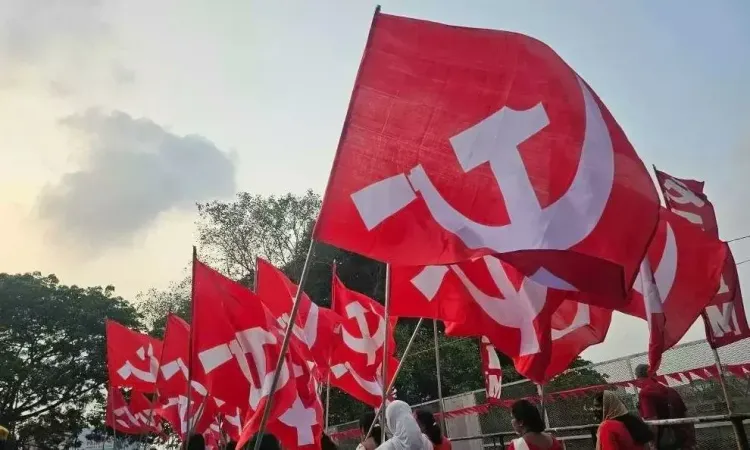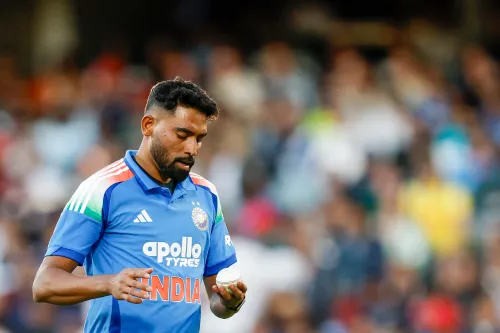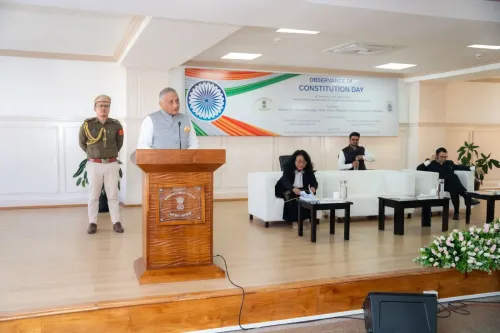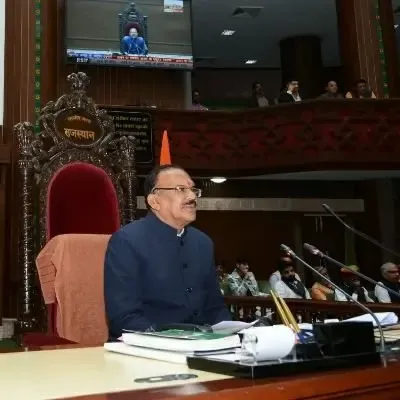Are the BJP and RSS Threatening Democracy?

Synopsis
Key Takeaways
- CPI criticizes BJP and RSS for threats to democracy
- Call for vigilance in preserving democratic rights
- Historical role of CPI in India's political landscape emphasized
- Rejection of AIADMK alliance offers
- Concerns over voter list integrity in Bihar
Chennai, Aug 18 (NationPress) The Communist Party of India (CPI) wrapped up its “Velga Jananayakam Ezhucci” (Long Live Democracy) conference in Salem on Monday, where senior party leaders, including General Secretary D. Raja and State Secretary R. Mutharasan, vehemently condemned the Bharatiya Janata Party (BJP) and the Rashtriya Swayamsevak Sangh (RSS) for what they termed as persistent threats to India’s democratic structure.
The event saw participation from leaders of various political factions, including Tamil Nadu Chief Minister M.K. Stalin, and attracted thousands of CPI activists and supporters from across the state.
During his address, D. Raja expressed concerns about the severe strain on democracy in India. He highlighted that the right to vote, a cornerstone of democratic governance, is being systematically undermined, citing ongoing protests in Bihar against alleged voter list manipulations.
Raja warned that if democratic forces do not remain alert, Tamil Nadu and Kerala might encounter similar issues. He accused the BJP and RSS of pushing a communal and fascist agenda aimed at turning India into a religious state and eroding the Constitution established by Dr. B.R. Ambedkar.
Raja emphasized the necessity of resisting any attempts to modify the Constitution, declaring that the country must be safeguarded from the “clutches of the BJP.”
CPI state secretary R. Mutharasan, who spoke at the concluding public meeting, reiterated these worries and stressed the party’s commitment to combat fascist ideologies.
He reminded attendees of the CPI’s historic significance in India’s political narrative, noting that the party has faced three bans, endured 12 years of underground activities, and made considerable sacrifices during the freedom struggle and afterwards.
Mutharasan also sharply criticized AIADMK general secretary Edappadi K. Palaniswami for his comments regarding the CPI, asserting that Palaniswami lacks the moral and political authority to question the CPI’s significance, given the party’s historical struggles.
He firmly dismissed Palaniswami’s suggestion for the CPI to join the AIADMK-led alliance, making it clear that the party will not be influenced by temptations of political convenience.
“The CPI cannot be bought or sold,” Mutharasan asserted. “We are an independent party, dedicated to safeguarding people’s rights and thwarting fascist politics.”









